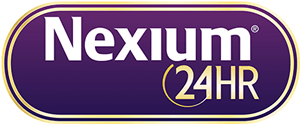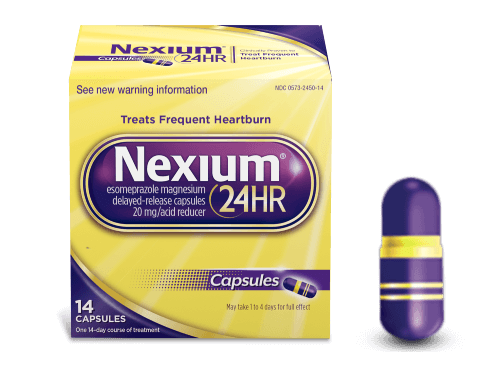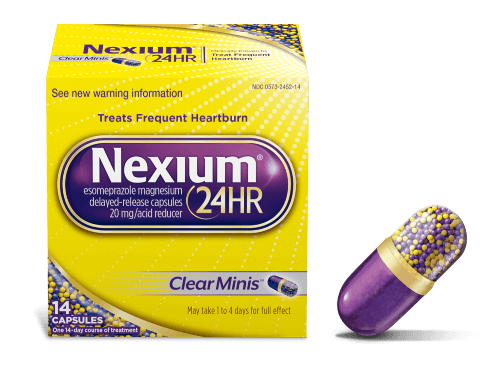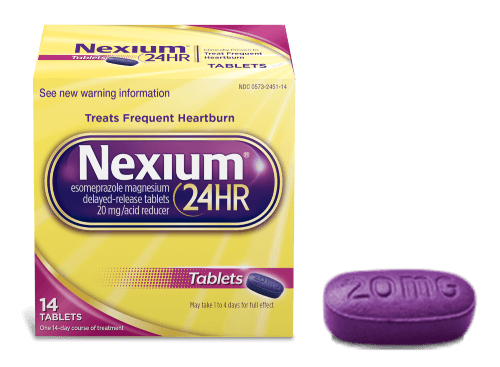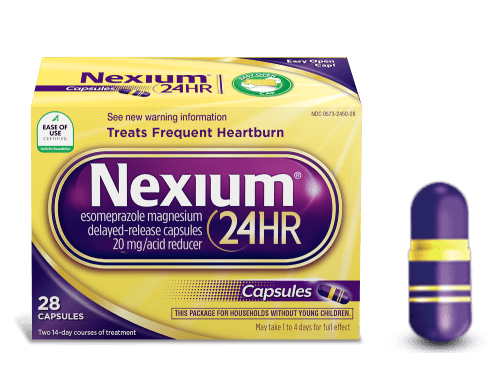HEARTBURN AT NIGHT
Heartburn can disrupt your sleep and wake you up at night. Discover what can cause or trigger heartburn at night and how to treat it.
If you suffer from frequent heartburn disturbing your sleep, you are not alone. Up to 75 percent of US adults who experience heartburn during the day say that they can also experience heartburn at night. To get relief for frequent heartburn waking you up at night, here are some tips for finding relief from heartburn symptoms. They can help you discover a comfortable night’s sleep.
WHAT CAUSES HEARTBURN AT NIGHT?
Heartburn at night is often caused by lying down too soon after eating or drinking. Lying down can prevent food particles and liquids from moving easily down the esophagus and into the stomach and can also cause stomach acid to flow up into the esophagus, provoking heartburn symptoms. While the lining of the stomach is designed to withstand the acids that break down food before it moves through the gastrointestinal tract, the esophagus is not protected from acid in the same way. For these reasons, try to sit up or stand for three hours after eating to help reduce heartburn symptoms.
It’s important to remember that heartburn (whether at night and/or during the day) can be triggered by a variety of additional factors such as eating particular foods, stress, or smoking. Learn more about the causes of heartburn in general.
WHICH FOODS CAN MAKE HEARTBURN WORSE?
Certain foods are found to be more commonly associated with triggering heartburn than others. Foods and beverages linked to heartburn include.
Citrus juices: Citrus fruits like oranges, lemons, limes and grapefruits are highly acidic and may contribute to acid reflux.
Coffee: Caffeine in coffee relaxes the lower part of the esophagus and contributes to heartburn and acid reflux, while some varieties also contain more acidity.
Peppermint: This plant is found to have relaxing effects on the sphincter muscle that separates the stomach from the esophagus, which contribute to heartburn.
Soda & Other Carbonated Beverages: Bubbles in carbonated soda can expand inside the stomach and increase pressure, pushing stomach acids back up the esophagus.
Excessive Salt: High-sodium diets have been linked to acid reflux and heartburn.
Spicy foods: Spicy foods may contribute to heartburn and further irritation to an inflamed esophagus because they contain compounds that slow the body’s digestion rate.
Alcohol: Beer, wine, and liquor have sedative effects that relax the lower part of the esophagus and make it easier for acid to flow back into the esophagus.
WHAT ARE SOME WAYS TO RELIEVE HEARTBURN AT NIGHT?
One thing you can do to identify the causes of your nighttime heartburn is to track and write down your behavior around bedtime. For instance, if you tend to snack before bedtime, try eating those foods earlier in the day to see if symptoms improve.
Here are some lifestyle modifications that may help minimize heartburn symptoms at night.
Avoid eating anything within three hours of bedtime. Eating a late heavy dinner can cause stomach contents to press harder against the lower part of your esophagus when you lie down to sleep. Eating earlier in the evening could eliminate heartburn symptoms.
Wear looser clothing. Remove any tight-fitting clothing, drawstrings, or belts that fit snugly around your waist. Tight clothing can squeeze your stomach and cause heartburn and acid reflux.
Sleep on your left side. Evidence suggests that sleeping on your right side may worsen nighttime heartburn symptoms, while sleeping on your left may improve digestion.
Avoid alcohol, carbonated beverages, and these trigger foods before bedtime: Beer, wine, liquor, tomatoes, marinara sauce, chocolate, peppermint tea, dairy, and spicy foods are all linked to heartburn.
Elevate your head while sleeping. Sleep with the upper part of your body elevated to prevent stomach contents from flowing back up into your esophagus when you go to bed. Consider using a wedge-shaped pillow or blocks that raise the head of your bed.
HOW TO TREAT FREQUENT HEARTBURN
If you’re experiencing frequent heartburn, taking an OTC medication could help. One way to treat frequent heartburn is with OTC proton pump inhibitors (PPIs). OTC PPIs like Nexium 24HR turn off the acid pumps in your stomach and reduce the amount of acid that can flow back to the esophagus. Taking just 1 pill in the morning for 14 days* can provide you with 24-hour protection from frequent heartburn. To compare all heartburn treatments, please visit our "Compare Treatments" page. Remember, if an OTC medication doesn’t seem to work for you after the directed usage period, see your doctor.
*Use as directed for 14 days to treat frequent heartburn. Nexium 24HR may take 1-4 days for full effect.

